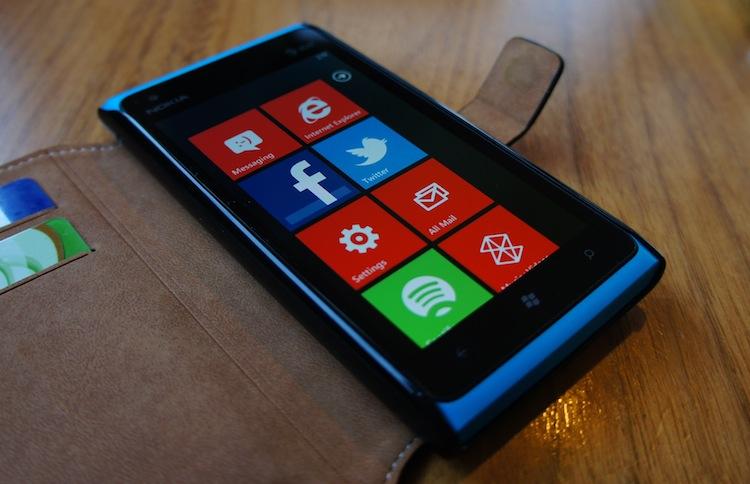
The smartphone world is a fast-paced one. A testament to that is how quickly new and revised software comes to market and, likewise, how quickly hardware becomes dated. Instead of keeping a phone for years, more and more people are prone to buying and up-trading their device every couple months to stay current.
One major question that is on many consumers' minds when they purchase a new device, though, is whether or not their phone or tablet will be eligible for the next major software update. Everyone likes to assume their device will be compatible or capable of running the next software version, likely because they have just purchased the latest and greatest. In four month's time, though, latest and greatest quickly becomes old and outdated.
In terms of Android, software updates are a disaster. Thanks to the Android Update Alliance, users are "guaranteed" all software updates that occur within 18 months of their device's original release date. That, however, doesn't always happen. This year and last, we learned just how little the alliance actually did to push updates out quickly or to ensure those updates would even happen for older devices.
But now software update issues are falling on another up-and-coming mobile platform. Windows Phone originally launched in the U.S. in October of 2010. Since then, the platform has undergone a handful of minor updates and one major software update, Mango. Heading into 2012, there are two more software updates on the horizon, Tango and Apollo (Windows Phone 8).
From the time we first learned of Apollo, many questioned what phones, if any, would be eligible for the update, seeing as it's a major update. Yesterday, a video of a Microsoft evangelist brought good news, claiming that all current Windows Phone devices will receive the Windows Phone 8 software update. This brought an air of confidence and peace of mind to existing Windows Phone owners. This morning, however, came a conflicting report. A source speaking to The Verge says the exact opposite of yesterday's video, that no current phone will be upgraded to Windows Phone 8.
All Microsoft is saying on the matter is that "all apps in our Marketplace today will run on the next version of Windows Phone." Aside from that, Microsoft had nothing else to add about future software releases.
So which rumor should we believe? Can we breathe a sigh of relief assuming current-gen Windows Phones will receive the Apollo update? Or will Windows Phone fans have to simply purchase a new device to experience the pleasures or Windows Phone 8?
Following The Verge's report, Engadget's Brad Molen (@phonewisdom) tweets:
"You know what this conflicting news about whether or not mango phones will get Apollo means? That nobody really knows for sure.
That or Microsoft has changed its mind over time and sources have only been involved with part of the process."
I could be wrong, but I would guess that the truth lies somewhere between the two reports. Molen's statement seems to be the most sensible approach to such conflicting views.
With new software comes new minimum hardware requirements. You may recall when Android users had a similar scare prior to the Honeycomb release, fearing that new minimum hardware requirements would make every existing Android device incapable of running the new software. After the update was officially announced, though, we learned that Android 3.0 was specifically for tablets. Users were scared of the same thing when Ice Cream Sandwich neared, but we learned that most devices that had released in the previous year were eligible for the update.
While it could easily go the other way, I imagine this Windows Phone 8 debacle will pan out much like Ice Cream Sandwich. We don't know exactly when Apollo will land, only that it's expected sometime later this year. Details have surfaced claiming that it would come with new hardware support (i.e.: higher resolution displays, multi-core CPU architecture, microSD cards and NFC). In other words, this will be a huge update that will propel Windows Phone to an entirely different level, possibly right into the heat of the battle.
That said, even if current Windows Phone devices were upgraded to Apollo, they would only take advantage of a small portion of the alterations made, strictly software improvements. While that's not particularly terrible, it isn't ideal, which may be why Microsoft decides not to allow current-gen devices to be supported by the next major update.
But why would they put so much behind the platform's two most recent "hero" devices? The Titan II and Nokia Lumia 900 have caused quite a ruckus in the industry over the past two weeks, bringing more interest to Windows Phone than ever before. And the Lumia 900, supposedly, has exceeded AT&T's expectations and even sold out at several locations. Yet why would Microsoft put so much money and effort into partnering up with AT&T to push these devices without future-proofing them?
The last thing Microsoft and Windows Phone needs right now is bad press. And abandoning all of their existing users on old software versions is a quick and easy way to do just that. I simply have a hard time believing that the Lumia 900 and Titan II, if nothing else, will not be upgraded to Windows Phone 8.
Then again ...
My suggestion is to assume your device will not receive Apollo. Expect it. It will save you a lot of anger and frustration. Then, if you learn your device will receive the update later this year, you will have something to look forward to.
What do you make of the conflicting rumors, ladies and gents? Do you think Microsoft will abandon all of the legacy devices and users as Windows Phone 8 nears? Or, like we originally believed, will every device be upgradable to Apollo?